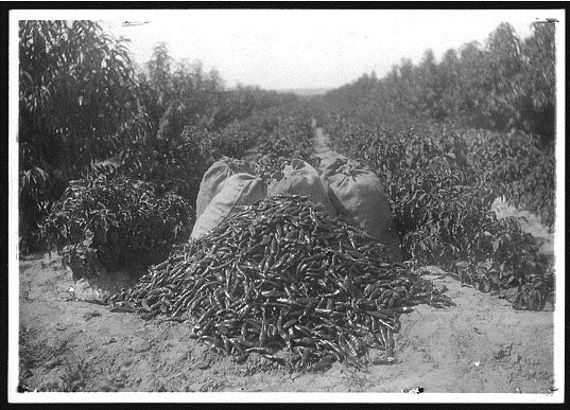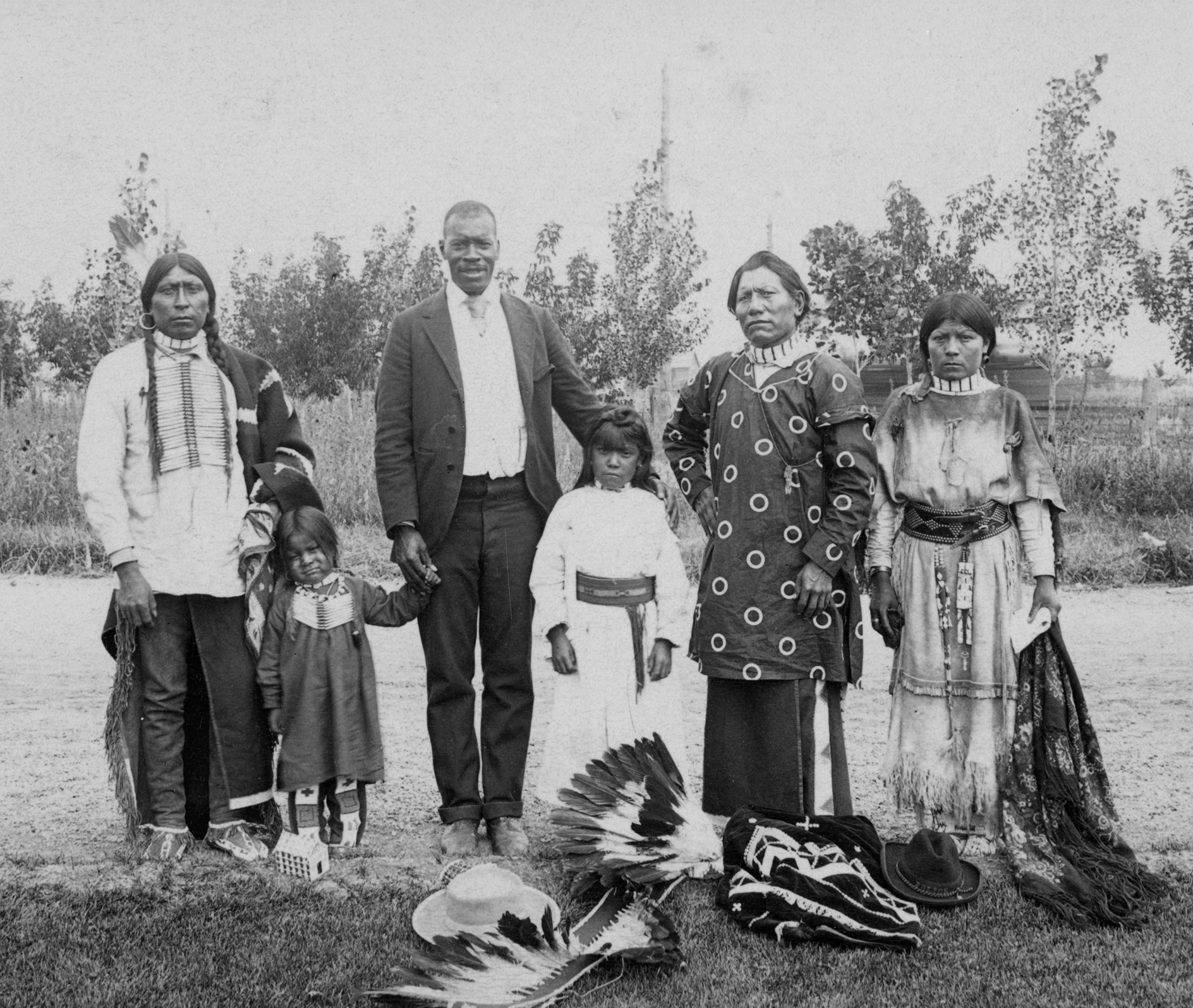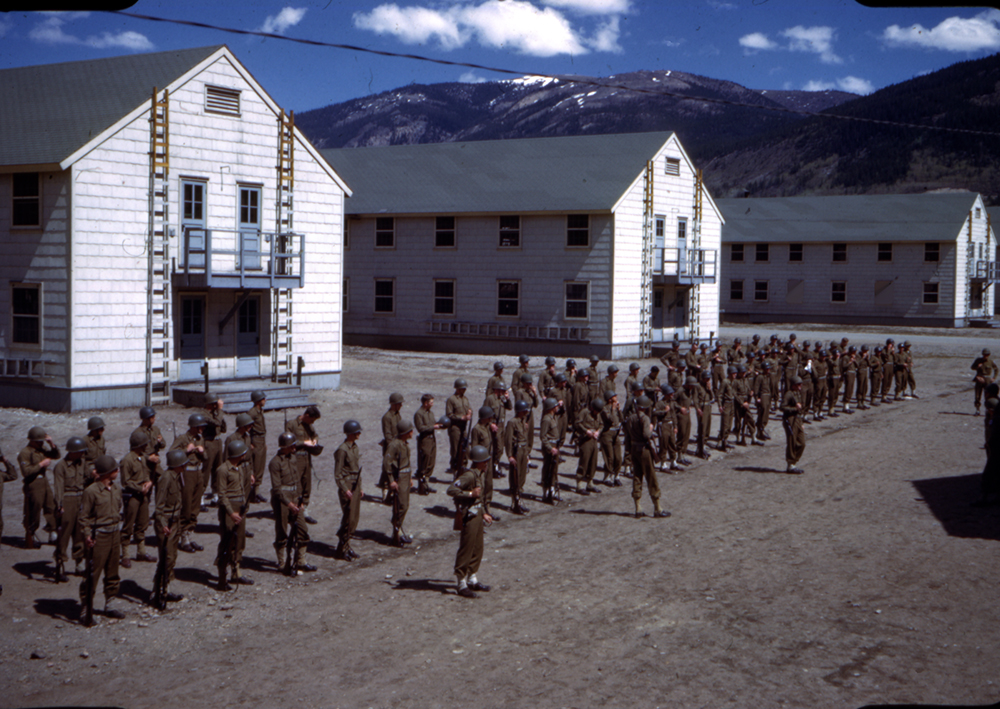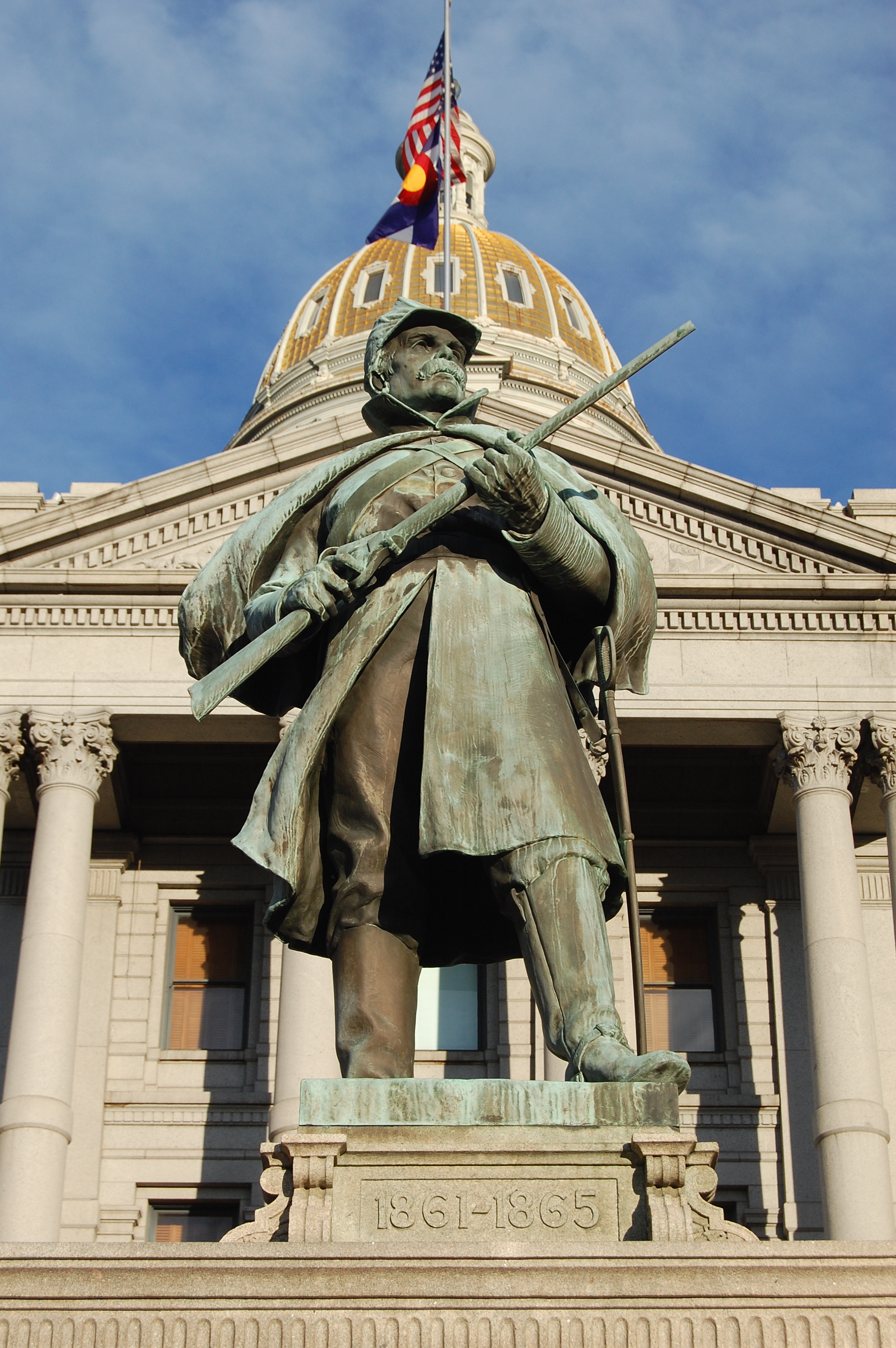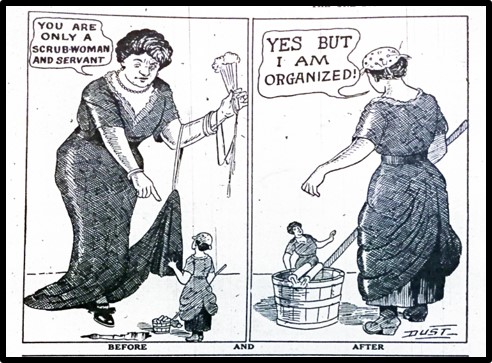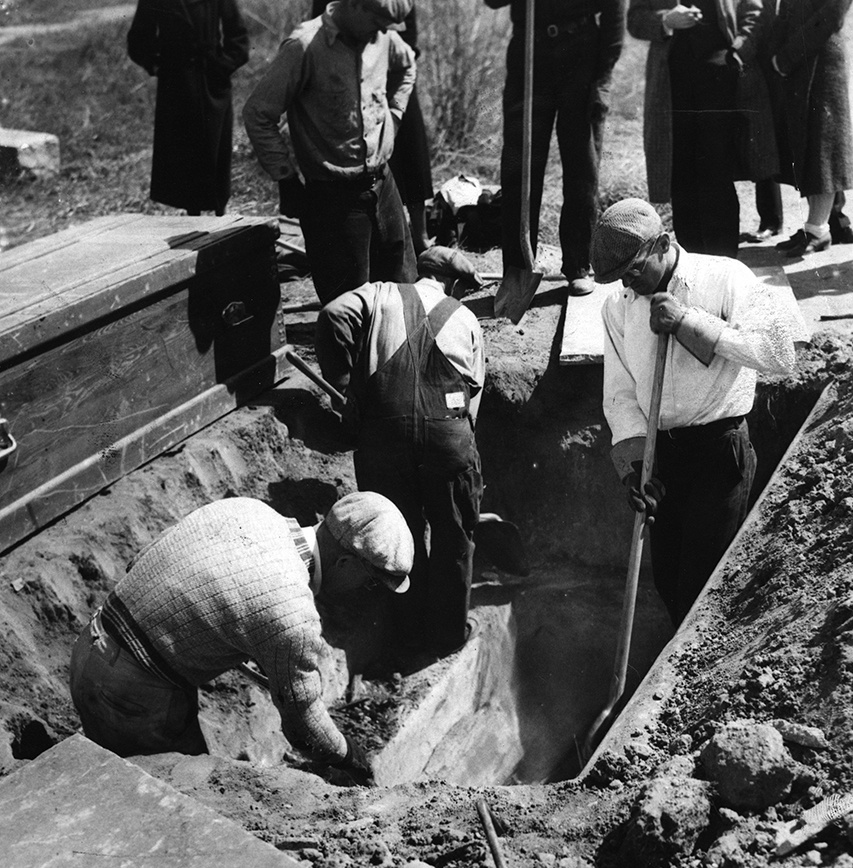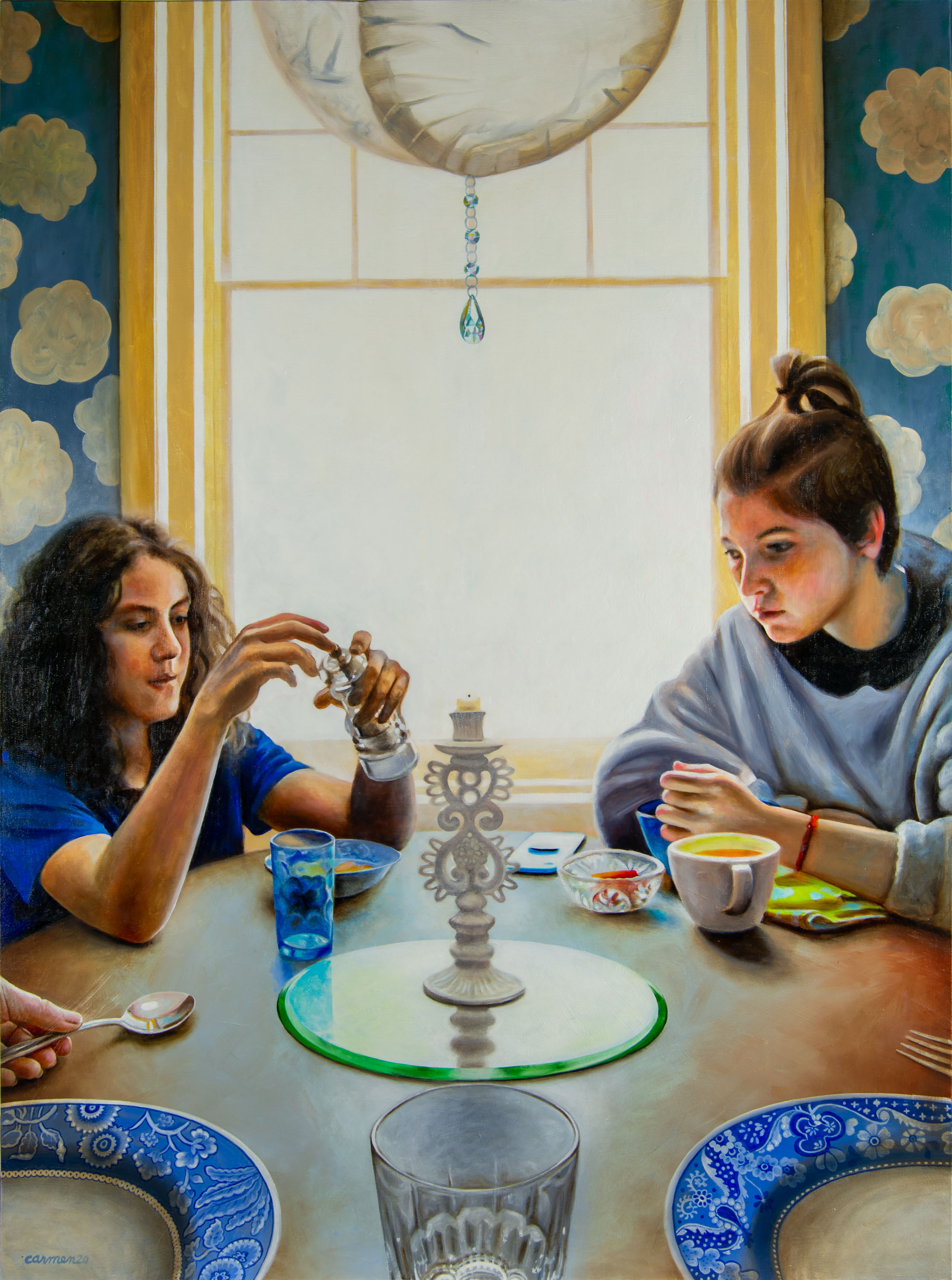
Event Series
Rosenberry Lecture Series: History for the Curious
The Rosenberry Lecture Series brings speakers from around Colorado and the United States to shed new light on topics in Colorado history. This eight-part series explores the rich and complex history of our state and invites us to explore our shared past to shape our collective future.
This year, we’ll explore a range of topics that will excite a sense of wonder about our shared history. From the history of the chile pepper to the proud story of the 10th Mountain Division, this season is sure to ignite your curiosity and connect you to new stories of importance. Learn about the complexities of Black identity in the Ute Borderlands; the rise and demise of organized crime and the Ku Klux Klan in Denver; as well as the heartbreaking portrait of one woman’s courageous fight for equality. As is tradition, the season is capped off with the prestigious, annual State Historian’s address in May.
Lectures are in-person at the History Colorado Center on the third Wednesday of every month (September - May) at 1:00 pm and 7:00 pm.
Based on participant feedback and the technical difficulties involved, only in-person lectures will be offered this year. Lectures will not be recorded, to preserve the intellectual property of our guest speakers. Complimentary cookies and beverages will be offered at each event!
Individual Tickets:
- $15 non-members
- $10 members - Become a member today!
- $5 student, no/low income
For questions and assistance email Rebecca.Chickadel@state.co.us.
Select speakers will offer to sign their books after their lecture! Get yours ahead of time on the History Colorado Bookshop→
Fabián García’s Chile Pepper and the Botanical Transformation of the Borderlands
Wednesday, September 20
Scholar Peter A. Kopp discusses the research from his forthcoming book about the history of the chile pepper. Through the story of Fabián García, horticultural pioneer, he will explore the botanical transformation of the Borderlands.
Dr. Kopp is a public historian of the North American West with specialties in the history of agriculture and the environment. His book, Hoptopia: A World of Agriculture and Beer in Oregon’s Willamette Valley (University of California Press, 2016) won the American Historical Association’s Pacific Coast Branch Book Award for first time authors (2017). Dr. Kopp has also written articles and developed public history projects on tourism and the National Park Service, the built environment of the Southwest borderlands, and the “green” activism of the Grateful Dead. Currently, he is preparing a book manuscript on Fabián García, the “Father of New Mexico Chile.” Kopp earned his Ph.D. from the University of Nevada in 2012 and served as the Director of Public History at New Mexico State University from 2012-2019.
John Taylor & Black Identity in the Ute Borderlands
Wednesday, October 18
Join Professor Louis Gregory McAllister as he explores the story of John Taylor, a freed Black man who enlisted as a Buffalo Soldier following the Civil War and was sent west. McAllister, professor of Ethnic Studies at Northern Arizona University, is discussing the history of how Taylor settled in southwestern Colorado, where he claimed to be “the first white man in the Pine River Valley." Taylor eventually married Kitty Cloud (Ute) and had four children before passing away in 1934.
Professor Greg McAllister holds a M.A in History from the Northern Arizona University and is a professor of Ethnic Studies at Northern Arizona University. McAllister's specializations include: Race relations in the United States Southwest Borderlands; African American History; American Indian-Black relations in American History; Racial formation in American History; and Integrating film, art, music and literature into the fields of History and Ethnic Studies.
The 10th Mountain Division’s Legendary Breakthrough in World War II
Wednesday, November 15
Dr. Chris Juergens will explore the storied history of the 10th Mountain Division in World War II. This famed military unit was activated and trained in the Colorado Rockies as America's first mountain and winter warfare troops before deploying to combat in northern Italy in 1945. You will learn about their intense wartime preparation, their harrowing combat experience, and the tremendous legacy they left behind for our state - and the world.
Dr. Chris Juergens is the Head of Curatorial Services and Anschutz Curator of Military History at History Colorado. He earned his Ph.D. with a dissertation about Hessian troops in the American Revolution, though he is especially passionate about the history of the World Wars. In his free time, he is usually playing board games, falling down Wikipedia rabbit holes, or teaching for the Naval War College.
Changing of the Guard: Colorado’s Toppled Civil War Monument
Wednesday, January 17
Monuments transmit stories, knowledge, and values in ways we hope will benefit our descendants. But what happens when generational values shift about who, or what, deserves to be commemorated? Jason Hanson will share the behind-the-scenes story of History Colorado’s groundbreaking exhibition of Colorado’s toppled Civil War monument and reflect on the role of monuments in society today.
Jason Hanson is the Chief Creative Officer and Director of Interpretation and Research at History Colorado, where he works with talented colleagues to create award-winning and groundbreaking exhibitions; actively build a collection that reflects the stories of all who have called Colorado home; publish The Colorado Magazine, the state’s historical journal of record since 1923; and produce the acclaimed Lost Highways podcast. He has written widely about Colorado history on topics such as the role of monuments in society, the origins of the modern workplace, what we'll remember about 2020, gender roles in Utopian communities, environmental history, baseball, and beer. He also works closely with the State Historian's Council as the Deputy State Historian.
Con Men and Klansmen: Denver 100 Years Ago
February 21
Journalist Alan Prendergast will discuss the archival reporting that went into his book GANGBUSTER, a narrative nonfiction account of Denver District Attorney Philip Van Cise's battles with organized crime and the KKK in the 1920s, an epic conflict that still resonates today. A book signing will follow the talk.
Alan Prendergast is an award-winning journalist and the author of a true crime book, The Poison Tree, and Gangbuster: One Man’s Battle Against Crime, Corruption, and the Klan. His work has appeared in Rolling Stone, Outside, the Los Angeles Times, Westword, and other publications, as well as The Best American Sports Writing and The Best American Crime Reporting. He lives in Denver and writes frequently about the justice system, historic crimes, and high-security prisons.
Excess to Extremism: How Colorado’s National Guard Spoiled Denver’s Kitchens
Wednesday, March 20
In the early 1900s, the fight for workers' rights reached a fever pitch in Colorado. For over two decades unions did battle with major companies and the state government, culminating in violent attacks on striking miners by the Colorado National Guard. After prominent upper-class women defended their husbands' roles in these massacres, national labor organizer Elizabeth Gurley Flynn decried: "The queen in the parlor" has no interest in common with "the maid in the kitchen!"
Local union leader Jane Street, outraged by these massacres of striking workers and the mistreatment of domestic servants, set out on a crusade to punish Denver's elite by unionizing their household staff. Jane Little Botkin will tell the story of Street’s fight to change the status quo.
Spur award-winning author Jane (Janie) Little Botkin served as a public-school teacher for thirty years before turning to historical investigation and writing. A member of the Western Writers of America since 2017, Jane currently serves as its vice-president. Her books have won numerous awards in biography, western historical nonfiction, and women’s studies. The Girl Who Dared to Defy: Jane Street and the Rebel Maids won History Colorado’s Barbara Sudler Award, Denver Public Library’s Caroline Bancroft History Prize, and was finalist for the Colorado Book Award. Jane’s upcoming book The Pink Dress, Memoir of a Guyrex Girl, (August 2024), delves into the early world of Guyrex, the famous Miss USA and Miss Texas beauty-queen makers, poignantly revealing more than behind-the-scenes realities of Guyrex’s unique approach to pageantry in the Wild West. Jane is preparing her third biography published by the University of Oklahoma Press, that of Mary Ann (Molly) Goodnight, savior of the Southern bison herd. Jane lives in the White Mountain Wilderness near Nogal, New Mexico, with her husband Gary.
Exploring An Unearthed History of Denver’s Historic Cemeteries
Wednesday, April 17
Join History Colorado’s Curator of Archives and lover of cemeteries Shaun Boyd as we meet some of the fascinating stories of Denver’s biggest and oldest cemeteries just in time for spring and summer explorations. Hear the story of how Denver’s first cemetery “migrated” to other places. Or did it? A ghost story or two will be told for good measure.
Shaun Boyd is the Curator of Archives at History Colorado. She has Master's degrees in History and Library and Information Science, with a background in women's political history and local histories in Colorado. She also has a deep love of the paranormal, and has participated in multiple haunting investigations, but thinks cemeteries are just cool, even without the ghosts.
How to Create Good Americans: History, Education, and the Responsibilities of Citizenship
State Historian’s Address with Dr. Claire Oberon Garcia
Wednesday, May 15
News headlines regularly remind us that American history has rarely been under more scrutiny. Yet this intense focus on our past also underscores widespread agreement that it's important to cultivate a knowledge of our shared history at all levels of our education system. From K-12 classrooms and school board meetings to college and university campuses, how we teach history has become a battleground. In her State Historian’s Address, Claire Oberon Garcia will ask: What do we owe all of our students as we prepare them to become informed and engaged citizens? What is the role of history in society?
Dr. Claire Oberon Garcia is a professor of English at Colorado College and the Colorado State Historian. Dr. Garcia has published extensive research focusing on Black history portrayed through literature, including an emphasis on women of the Black Atlantic in the beginning of the twentieth century. As a scholar and teacher, Dr. Garcia is particularly interested in the archives of the marginalized, the silenced and the “expendable” who did not have access to official institutions and dominant power structures.
The Rosenberry Lecture Series is made possible through the generous support of our sponsors,

